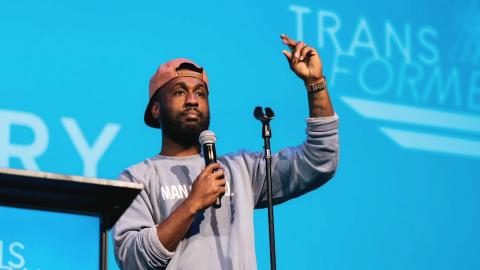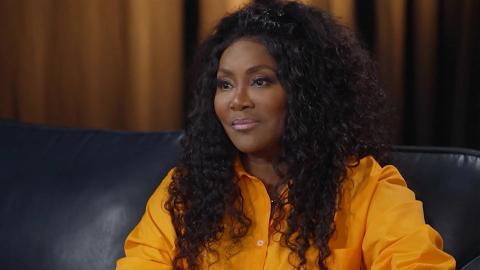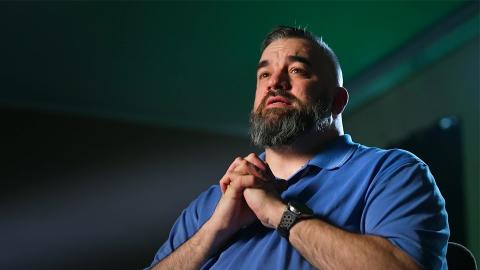Pro-Athlete Coach Provides Strategies To Overcome Barriers
HEART AND BRAIN CONNECTION
“Action is not only backed by psychology; it is also woven through our physiology,” shares David. Your heart (emotions) and brain are the two most driving forces in your daily decisions. When you begin to understand how they function, you can use them for your benefit and prevent them from holding you back in life. To activate the brain, you must eliminate hesitation so you can defeat fear. For example, if you hesitate on the court before you shoot you will more than likely miss. David says, “The brain is your sword.” On the other hand, the heart is your emotional brain; it wants to always protect you. For example, when you are anxious your heart’s rhythm becomes erratic and the brain is alerted to help calm you. The brain and heart connection, working as one unit, is what makes you a warrior.
ACTION ARCHETYPES
After doing extensive research, David introduces several different Action Archetypes to help you figure out the main roadblocks responsible for preventing you from taking action in your life. Keep in mind that every archetype is rooted in fear and at some point in life you have or will experience each of them. The benefit of being aware of these archetypes will increase your effectiveness in the workplace, help you be a better spouse, a better parent, a better friend, and a better you.
• The Burned – Getting burned leaves a scar. It hurts but is part of the process. David shares, “You have a choice in the type of scar you choose to wear. A scar that paralyzes future action or a scar that shapes your purpose.” Lewis Latimer was an African American 16-year-old boy who joined the Navy as a result of his father abandoning the family and now, he had to help provide for his mother and siblings. At the end of the Civil War, he was honorably discharged after incurring wounds from battle. Lewis felt defeated. “Who would want a black, wounded solder without a formal education?” thought Lewis.
He wandered the streets of Boston looking for any type of work he could get. Lewis finally got a job as an office boy at a law firm. He began to get attention for his ability to sketch patent drawings and create visions for new products (a skill he taught himself during the Navy). Then unexpectantly, his boss passed away. Without a word of explanation, Lewis was fired as the head draftsman. Months went by, then a stocky Scottish man in a top hat knocked on his door requesting his help with an invention that would change the world. Lewis had to decide to accept the offer or reject it for fear of being burned again. Lewis decided to take the job offer from Alexander Graham Bell to assist in inventing and illustrating the patent for a small project called the telephone. Lewis also was hired by Thomas Edison to increase the life span of the light bulb. He also became a backbone of leadership for the early Civil Rights movement.
• The Underestimator – You underestimate yourself when your worry about what other people think. Don’t seek the validation of others. Follow your heart. Underestimating your potential is derived from low self-esteem. “You always cling to the things that disqualify you out of fear that you are not good enough…Don’t let you stand in the way of living the life you want,” shares David. John Osteen (father of Joel Osteen) grew up in Paris, Texas during the Great Depression. He carried on the tradition of farming until he felt called to share the gospel. Unsure of his ability to do it he refused to let self-doubt stop him. He went to college, the first one in his family, shared the gospel every chance he got, and entered full time ministry.
Self-doubt could have destroyed him when his first marriage ended in divorce. Yet, he chose to silence the lies in his mind about not being good enough. He continued to do what he was called to do. Even when he was rejected by his church and asked to step down. John didn’t give up. Instead, he decided to start his own church, Lakewood Church in Houston, Texas, which he grew to more than 15,000 members including a weekly TV program that reached millions.
DAVID’S STORY
David grew up in Iowa. He was raised Catholic, but had no relationship with Jesus. He loved basketball from an early age and always dreamed of playing in the NBA. As a college basketball player, he was popular and enjoyed the partying scene, but felt empty on the inside. His senior year, a teammate invited him to attend a Christian event. “The people were worshipping, jumping up and down, celebrating and hugging – I thought they were all on drugs,” admits David. He returned to several more of the youth events and eventually realized the joy these people felt was because they loved Jesus. Soon after, David accepted Jesus as his Savior.
After college he was drafted to play professional basketball in Spain. His faith was tested after his first real game of professional basketball in Spain. His coach told him, “We are going to have to send you home. I don’t think you are going to be able to cut it.” Just like that his dreams of playing professional ball were over. He felt like all his hopes and dreams had been washed away. He returned home and for months moped around his parents’ home until one day his mom’s words changed the trajectory of his life. She said, “You know what, David, life is funny. Just when you think you have it all, life hits you like an avalanche and takes it all away… when you think a door is closed on life, it’s actually not. The closed door allows other ones to open up so better opportunities can emerge. When one door closes, four open, and an entire beachfront patio overlooking the ocean.”
David thought about his mother’s words and decided to give himself permission to expand his identity. He no longer had to identify strictly as a basketball player. David decided to give himself approval to not wait around for life to be handed to him, but rather gave himself permission to take action. He jumped up and wrote a letter to every NBA general manager in the league introducing himself, expressing how much he respected their organization, and stated if there was anything he could do to serve them he was all in. “I went from a victim of life to the captain’s seat,” says David.
One general manager responded at the time. Then in 2016, the Brooklyn Nets hired him as a coach to help players improve their shooting—they went from being 28th in the league to 2nd overall in 3-point shooting. In total, David has worked with over 175 NBA players whose contract earnings amount to 3.8 billion. Today, CEOs and professional athletes hire David for his award-winning strategies and infectious positivity.
Faith plays a huge role in his work with NBA pro athletes. During his training session with these players, his positive attitude and energy often cause them to ask the source of his joy. David does not hesitate to tell them about Jesus. He says, “Just like everyone else, professional athletes are searching for the truth. They are under so much pressure because of their careers, they perhaps more than others need to feel that joy and know there is something more out there, something bigger.”
Purchase David Nurse's book, "Do It," and find out more about David and his work here: www.davidnurse.com.



